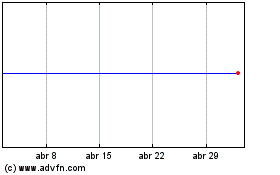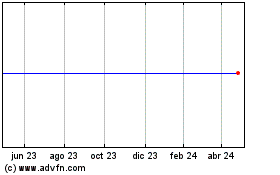ResMed’s Annual Global Sleep Survey Finds 8 in 10 Adults Experience Signs of Disruption Related to Their Quality of Sleep
13 Marzo 2023 - 5:00AM

ResMed’s Annual Global Sleep Survey Finds 8 in 10
Adults Experience Signs of Disruption Related to Their Quality
of Sleep
ResMed (NYSE: RMD, ASX: RMD) announced today the results from its
2023 Global Sleep Survey in conjunction with National Sleep
Awareness Week (March 12-18) and World Sleep Day (March 17) to
raise awareness for the importance of sleep as a key component of
physical and mental health.
The survey found that despite 64% of respondents saying they are
satisfied with the quantity of their sleep, more than 80% report
experiencing symptoms of disruption related to their sleep quality,
with consumers most commonly reporting mood changes, such as
depression or irritability (33%), waking up with a dry mouth or
sore throat (30%), difficulty concentrating during the day (30%),
and excessive daytime sleepiness (29%).
The 2023 Global Sleep Survey asked more than 20,000 respondents
from 12 countries during January 2023 about the quantity and
quality of their sleep, bedtime routines, and sleep habits and
found differences in respondents’ quantity and quality of sleep
based on location, gender, and age:
- Respondents from India (84%), Mexico (69%), and China (66%) are
most satisfied with their quantity of sleep, while those in
Australia (47%), Japan (46%), and the UK (45%) are the least
satisfied with the quantity of their sleep.
- 8 in 10 respondents reported one or more symptoms of sleep
disruption related to sleep quality; Mexico (87%), France (87%),
and South Korea (85%) had the highest rates of reported symptoms,
while Japan (60%) had the lowest.
- 60% of women report being satisfied with their quantity of
sleep (the least of any gender), compared to 68% of men and 65% of
nonbinary respondents. Women (83%) and nonbinary (94%) respondents
were more likely to say they have at least one symptom of poor
sleep compared to men (79%).
- 52% of women report
regularly waking up with a negative feeling in the morning (e.g.
cranky, anxious, miserable), with 26% saying they’re still tired.
Conversely, 58% of men report they are more likely to wake up
feeling positive (e.g. happy, refreshed, calm, energetic).
- 43% of Gen Xers and
Boomers and 49% of the Silent Generation report that they aren’t
satisfied with the quality of their sleep, compared to only 37% of
Millennials and 31% of Gen Zers.
Despite a majority of survey respondents reporting they wake up
with symptoms of poor sleep quality – one-third (33%) of
respondents have not been tested for sleep apnea or sought medical
help for other sleep conditions because they do not believe they
have sleep-related medical conditions. Additionally, 49% of
respondents said their doctor has never asked them proactively
about their sleep quality.
“Prioritizing sleep is one of the most effective ways to improve
your health, and poor sleep can increase the risk of diabetes,
obesity, heart disease, and depression,” said Carlos M. Nunez,
M.D., chief medical officer for ResMed. “It’s critical to have an
honest discussion with your healthcare provider about your sleep
habits and seek help if you’re experiencing patterns or symptoms of
poor sleep as it could point to a more concerning health issue or
sleep disorder such as sleep apnea.”
What’s Keeping People Up at Night and Tools They’re
Using to Improve Their Sleep Additional findings of
ResMed’s 2023 Global Sleep Survey address what’s keeping people up
at night and how people use technology to improve sleep. Findings
include:
- Amidst global reports of potential economic instability,
anxiety/depression (33%) and work-related concerns (33%) are the
two most cited reasons for keeping people up at night – an increase
compared to a similar question asked in 2022 (29% and 22%,
respectively).
- Anxiety/depression was most commonly reported as the reason
keeping people up at night in Brazil (46%), the U.S. (45%),
Australia (42%), and the UK (42%) – and least reported in Japan
(24%), India (22%), and Germany (21%).
- Among consumers whose sleep has gotten worse over the past
year, nearly one-third say financial pressures have caused the
decline in their sleep quality (32%), with those in the U.S. (41%),
Mexico (39%), and India (37%) reporting the highest impact.
- 43% of Millennials report using a sleep tracker to keep records
of their sleep patterns and quality of sleep, higher than Gen Z
(35%), Gen X (28%), Boomers (15%), and the Silent Generation
(7%).
To learn more about ResMed’s 2023 Global Sleep Survey or to take
a quick self-assessment for your risk of sleep apnea, visit
SleepForBetterTomorrow.com. Plus, learn about the digital health
technologies that are transforming how we sleep, breathe, live, and
care for patients on ResMed’s new podcast series, Awaken Your Best,
hosted by Dr. Nunez and available anywhere you stream your favorite
podcasts including on Spotify and Apple Podcasts. The first episode
premiers today – Monday, March 13 – featuring a conversation on the
latest digital health trends with Gary Shapiro, acclaimed author
and president and CEO of the Consumer Technology Association.
Survey MethodologyResMed 2023 Global Sleep
Survey included 20,069 total participants across the United States,
the United Kingdom, Germany, France, South Korea, Mexico, Japan,
Singapore, Australia, Brazil, China, and India, conducted in
January 2023.
For generational comparisons, the survey defines Gen Z as ages
18-26, Millennials ages 27-42, Gen X ages 43-58, Baby Boomers ages
59-77, and the Silent Generation ages 78-95.
About ResMedAt ResMed (NYSE: RMD, ASX: RMD) we
pioneer innovative solutions that treat and keep people out of the
hospital, empowering them to live healthier, higher-quality lives.
Our digital health technologies” and cloud-connected medical
devices transform care for people with sleep apnea, COPD, and other
chronic diseases. Our comprehensive out-of-hospital software
platforms support the professionals and caregivers who help people
stay healthy in the home or care setting of their choice. By
enabling better care, we improve quality of life, reduce the impact
of chronic disease, and lower costs for consumers and healthcare
systems in more than 140 countries. To learn more, visit
ResMed.com and follow @ResMed.
|
For media |
For investors |
|
Kristin Deuber |
Amy Wakeham |
|
+1 614.975.4186 |
+1 858.836.5000 |
|
resmed@allisonpr.com |
investorrelations@resmed.com |
|
|
|
Resmed (LSE:0KW4)
Gráfica de Acción Histórica
De Nov 2024 a Dic 2024

Resmed (LSE:0KW4)
Gráfica de Acción Histórica
De Dic 2023 a Dic 2024
